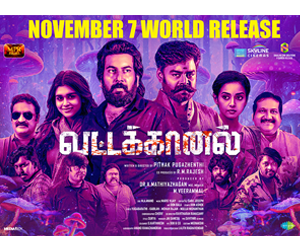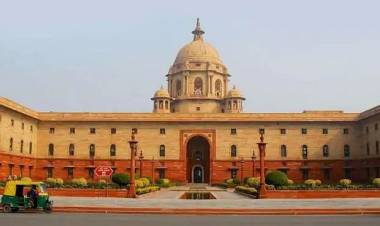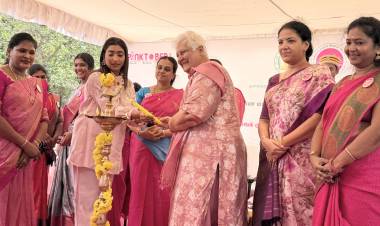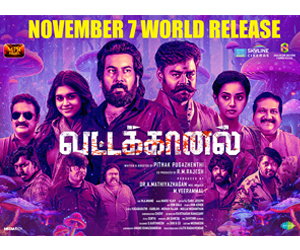IN THE HIGH COURT OF MADRAS H.C.P. No. 711 of 1993
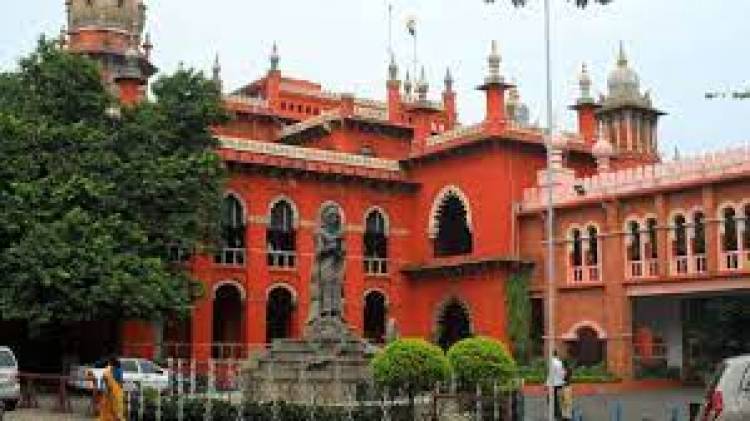
IN THE HIGH COURT OF MADRAS
H.C.P. No. 711 of 1993 Decided On: 01.08.1994 Appellants: Rajakannu
Vs.
Respondent: State of Tamil Nadu and Ors.
Hon'ble Judges/Coram:
P.S. Mishra and Shivaraj V. Patil, JJ.
Counsels:
For Appellant/Petitioner/Plaintiff: Mr. K. Chandru, Advocate
For Respondents/Defendant: Mr. R. Krishnamoorthi, Advocate General assisted by Mr.
B. Sriramulu, Public Prosecutor and I. Subramanian, Additional Public Prosecutor, on behalf of the Respondents 1 to 3. Mr. K.A. Panchapakesan, Advocate for the 4th respondent
ORDER
P.S. Mishra, J.
1 . R. Parvathy, wife of Rajakannu has moved this Court Under Article 226 of the Constitution of India and has sought for a writ in the nature of habeas corpus for the production of the body of Rajakannu and for compensation as a consequence of the alleged detention, injuries and disappearance of Rajakannu at the hands of the respondents herein and others as well as for the misbehavior of the respondents with the petitioner and others.
2 . Petitioner and her husband Rajakannu were daily-wage agricultural labourers having four children, Mariappan, aged 25 years, Ravi aged 13 years, Selvam aged 7 years and Chinnaponnu, aged 10 years. On 20th March 1993, the petitioner has alleged that her husband Rajakannu left the house at about 6 A.M. in search of work. At about 12 noon on the said date, the fourth respondent, by name Anthonisami, Sub Inspector of Police, Kammapuram Police Station, Vridhachalam Taluk in South Arcot District, and others, came along with five policemen to the petitioner's village. One of the companion constables was Veeraswami. The fourth respondent and others took the petitioner, her two sons Mariappan and Ravi and her brother-in-law Ratnam, aged 55 years, in the van in which they had come and which belonged to a tourist operator with Registration No.TAF-1269, to the police Station located at a distance of about 20k.m. from their village. She has narrated thereafter in her affidavit that she was left in one place and the other three were taken to the other room and, "without any provocation, the fourth respondent started beating me with a cane all over my body. Afterwards, at several places I had swelling. After finishing beating me up, the fourth respondent went and beat my two sons and my brother-in-law Ratnam. Around 11.00
p.m. the fourth respondent left the place." She was given some food by the writer of
the police station around 10 p.m. and she slept in the station itself in the night. Her husband, who came to know about her and her sons and brother-in-law having been
taken into custody by the police, came to the police station around 12 noon on 213.1993. The police then detained the petitioner's husband and let the petitioner, her sons and her brother-in-law go.
3. On 22.3.1993, the petitioner returned to the Police station with some food for her husband. She has alleged, To my horror I saw my husband tied to the window bar and was being beaten up on both sides. When I went and questioned the action of the fourth respondent, he and his subordinates once again beat me. He was so beaten that he fainted. He could not eat anything and he fell down. The fourth respondent and other policemen beat him with the cane all over the body. When I again questioned I was once again beaten up and I could not even breathe". Since, it is alleged after the beating they received at the hands of the police their condition had deteriorated, a homeopathic doctor, who lived near the police station was called and he put some injection and also applied ointment on the wounds of the petitioner's husband as well as on her body. She has then alleged, "As soon as the doctor left the place, once again they started beating my husband and the fourth respondent dragged my husband by holding his hair, inside the station and dumped him in one corner. This was noted by several persons who were in the lock-up. An old man who was sweeping the police station came and poured some water into the mouth of my husband." She has further added, "At this juncture the fourth respondent told me to go home and bring some food for my husband next day. When I hesitated from going away from the place (especially on seeing my husband's conditions), once again the fourth respondent beat me and I was forced to leave the station." The petitioner has then alleged that she took a bus at 3.30 p.m. and went to Vridhachalam and from there to her village and reached at 6 p.m. She has stated, "Even before I could reach I was told that the same van in which we were originally taken to police station (sic) (TAF-1269) some policemen came to our village and told some people who were in the Thope that my husband had escaped from custody and he was missing."
4. . Petitioner has thereafter narrated how she went in search of her husband to the police station, how she made desperate enquiries from any and every person concerned with her husband's detention at the police station and how finally when her efforts failed, she also desperately sent telegrams to the Chief Minister of the State and the Chief Justice of this Court. In the petition she has alleged, "I have reasons to believe that the fourth respondent and his subordinates have killed my husband and have also secretly disposed of his body. Now, in order to escape from criminal action they have trotted out a story that my husband had escaped from the police custody on 22.3.1993. In order to further buttress their story, I understand a case of man-missing was also registered by them and false statements are prepared in the name of several persons".
5. That petitioner's husband arrived at the police station and he was detained at the police station when the petitioner was asked to return to her home is specifically alleged and it appears, the police-tin fourth respondent and his men, had picked up the petitioner, her two sons and her brother-in-law and taken them to the police station without any information against any one of them and without any cause for apprehending them in exercise of the power either under S.41 of the Code of Criminal Procedure or Section 151 thereof, or under any other provision of law. She was present at the police station on the night of 20.3.1993 in dt. 21.3.1993 and on the following day, i.e. 22.3.1993 and as alleged, severely beaten by the police. Her husband was beaten by the fourth respondent and his men on the night of 20th and 21st March, 1993 as well as on 22.3.1993 in her presence. A homeopathy doctor was called, who gave some medicines to her and her husband. It was in her presence, she
has alleged, that the fourth respondent dragged her husband by holding his hair inside the station and dumped him in one corner. She was asked to go home and bring some food for her husband the next day, but according to her version, between
3.30 p.m. and 6 p.m. when she was on her way to her home, the news that her husband had escaped from custody and was missing was spread.
6. The Court admitted the petition on 21.4.1993 to hearing. Learned Additional Public Prosecutor took notice on behalf of the respondents and the court ordered the case to be called on 28.4.1993.
7 . The first respondent has not filed any counter. Respondents 2 to 4 have filed separate counter-affidavits.
8. The police version or the version coming from the fourth respondent and his men at Kammapuram Police Station at the relevant time was that the petitioner's husband was missing. The petitioner, however, has been making representations and one such representation is narrated in the counter-affidavit of the Superintendent of Police, South Arcot District at Cuddalore (as he then was, the second respondent), who has said that his office received the petition dated 23.3.1993 from Tmt. Parvathi in which she had alleged that her husband Rajakannu was assaulted at the Kammapuram Police Station and that he was missing from 22.3.1993. He has stated, "After scrutinising the contents of the petition, I immediately directed the third respondent herein to investigate into the matter and as evidenced by note bearing C. No. 102 (Camp-93) dated 23.3.1993." He has also stated that it was pursuant to the directions given by him that the third respondent, viz., Deputy Superintendent of Police, Vridhachalam, instructed the Inspector of Police, Vridhachalam to take further action in the matter. Further action, this respondent's affidavit says, "Accordingly the case in Cr. No. 114/93 was registered on the file of Kammapuram Police Station as man missing and the same is being investigated by him." As to the allegations of assault upon the petitioner, her husband and others, by the police at the said police station, this respondent has said, "The Deputy Superintendent of Police, Vridhachalam, referred the matter to the Revenue Divisional Officer, Vridhachalam R.Krishnamoorthy for enquiry and as submitted earlier directed the 3rd respondent herein also to register a case and investigate into the same."
9. The third respondent, the then Deputy Superintendent of Police, has acknowledged that he was instructed by the second respondent on 24.3.93 to investigate into the petition preferred by the petitioner, but has said, "Accordingly I directed the Inspector of Police, Vridhachalam - Police Station to register a case and investigate into the same." He, however, has a further statement, said to have revealed during investigation of the case that he got initiated that "Thiru Rasakannu was seen by one Panneerselvam at Mandarakuppam village, Neyveli, at about 9.00 p.m. on 22.3.1993. The investigation also disclosed that Rasakannu borrowed a sum of Rs.100/- from the said Panneerselvam while informing him at the same time that he was going to the local doctor Mr.K.Ramachandran as he was suffering from bodily pain.
1 0 . The fourth respondent's counter-affidavit has a narration of events to the following effect:
On 20.3.1993 one Kadirvel Padayachi, son of Ponnusamy Padayachi of Gopalapuram Village filed some complaint with him for an offence of theft. The complainant had alleged that some persons trespassed into his house on the night of 19th March, 1993 and committed theft of jewellery of about 43
sovereigns valued at Rs.1,30,000/-. This was registered in Crime No. 107/93 for an offence under Ss.457 and 380, Indian Penal Code. In course of the investigation the enquiry revealed that some persons belonging to the Kurava community residing in another village had come to the complainant's village on the night of the occurrence. Accordingly he went to the petitioner's village to make enquiry, in particular, about the petitioner's husband. He has stated thereafter as follows:
On 21.3.93 I went to Madannai and I traced Rasakannu mere at about 5 p.m. and I questioned him regarding the theft which took place at Gopalapuram. He told me that he was only staying at cashewnut thope belonging to the Iyyanar temple at Madannai. He also told me that he did not know any person belonging to Pandanallur village. Then I took Rasakannu with me and went to Neyveli, Didirkuppam and a few other places. I was not able to get any tangible clue regarding the theft case. On the night of 21.3.93 myself and Rasakannu stayed at Neyveli and on the next morning came over to Muciannai where we met the wife of the Rasakannu. When I questioned Tmt. Parvathi (Rasakannu's wife) she told me that her husband left the house at about 7.00 a.m. on the morning of 203.93 itself taking along with him a small plastic bag and went towards the cashewnut thope at Mudannai village. In view of this information I took Rasakannu with me to the Police Station. He took the lunch which had been brought by his wife. I asked Rasakannu to sleep in the thatched shed opposite to the police station. I also went inside the police station and laid myself on a bench there. At about 4.15 p.m. I was awakened by the relieving para constable Thiru Meenakshisundaram (P.C.1058) who informed me that Rasakannu was not in the thatched shed. Thereafter we took a van and searched for him at various places. Constables of our police station were despatched to Mudannai, Sethiathoppe, Vridhachalam and other places to trace" Rasakannu. Thereafter I went to Arasakuzhi along with the Station writer. But no useful dues were available even until 9.45 p.m. I returned to the station and stayed there for the night. On the next morning I went over to Mudannai and various other places, but I could not trace Tr.Rasakannu. I respectfully state that till 1.4.93 inspite of intensive search I could not trace Rasakannu. On 1.4.93 was transferred from his station to Ramanatham Police Station.
He has denied the allegation that he assaulted the petitioner's husband or her sons and the brother-in- law. His affidavit read with the affidavit of the third respondent in any case confirmed that petitioner's husband was brought at the police station but indicated that he had escaped and was seen by someone during the course of the investigation of the case that was registered at the police station under the orders of the second respondent.
11. . Petitioner however stood by her assertions and disputed the case pleaded on behalf of the respondents that petitioner's husband had escaped from the police custody. The case, however, took a bizarre turn that the court proceeded to take evidence on the question whether the version of the petitioner was true or that of the fourth respondent; whether the petitioner's husband bad escaped from the police station and/or available somewhere within the knowledge of either the petitioner or any other person and whether there was any cause for entertaining the writ petition for a writ in the nature of habeas corpus- on the facts which were substantially in dispute. Some witnesses have been examined and curiously also cross-examined by some of the respondents.
12. When the matter came before us on some dates for hearing and we heard learned counsel for the parties on the desirability of any enquiry by this court after taking evidence that either the petitioner or the respondents intended to adduce, we also explored whether it was possible to get at the truth by an impartial investigation strictly in accordance with law and on an assurance by the learned Advocate General that there would be an impartial investigation by an. agency of the State Government into the matter, we directed suspension of evidence in the proceeding before us and considered the proposal that the learned Advocate General advanced for an impartial investigation.
1 3 . Before, however, we accepted the proposal for the investigation with some modification as indicated by us in our order dated 29.4.1994, we directed the petitioner to bring on the record of the case a comprehensive narration of the facts which may constitute a first information report for the police for action. The petitioner accordingly put forward a comprehensive affidavit of the events by one Govindaraj which, taken together with the statement of Parvathi, appeared to complete the narration of events so far as the case of the petitioner is concerned. Accordingly, the police in Crime Branch CID registered Crime No. 5/94 and Thiru. B.Perumalswamy, an officer belonging to the Indian Police Service, and who is holding the Office of the Inspector General of Police, CB, CID, Madras, took up the investigation, recorded or got recorded the statements of the witnesses for the prosecution under Section 161 Crl.P.C. and collected or got collected such other materials which he thought were relevant for the prosecution. His immediate concern, which would appear from the supplementary report that Thiru B.Perumalswamy has submitted, was to ascertain the disposal of the corpus delicti if the apprehension of the petitioner was true that her husband was done to death at the police station and according to him, it was suspected that in case the missing person died while in custody, the body should have been disposed of in the nearby area. Whether a chance running into the records, two cases in Crime Nos.167/93 and 168/93 of Meansuriti Police Station in Tiruchirapalli District about 40 k.m. from Kammapuram Police Station or by dint of the sincere and serious investigation, it was found that dead-body of the victim in Crime No. 168/93 aforementioned was identified by the relatives and the body after necessary formalities was handed over to them. It was the deceased in Crime No. 167/93 which appeared to respond to the circumstances that appeared from the evidence recorded by the team under the control of Thiru B.Perumalswamy To clinch the issue it was found that the Photographs of the deadbody involved in Crime no. 167/93 of the said Police Station, were available and when the same were shown to the witnesses they identified and confirmed that the photos were those of Rajakannu. The identification of the dead body and the cause of death, the time of death and other circumstances together with the report submitted before us disclose offences punishable on various counts including under Section 302, I.P.C. and 302 read with Section 34, Sections 218 and 220, I.P.C. establish the place of occurrences as the Kammapuram Police Station and identify the offenders including the fourth respondent. He has reported as a conclusion of his enquiry the charges for the purpose of consideration of the case by a competent Court of law and proposed accordingly, a report under section 173(2), Crl.P.C.
14. This case is only one such example where indifference after the complaint was lodged, of the men in power and senior police officers and casual approach of the courts in the proceedings before them like the instant petition for a writ in the nature of habeas corpus, cause severe blow to the truth that it is almost lost. If such people who are involved with the affairs of the police as well as the Courts rise to the occasion and act promptly, real danger to the system and the polity can be avoided.
This will also show that while there are some bad men involved in the affairs of the State and hold responsible positions including the position of the Officer in-charge of a police station who are primarily concerned with the maintenance of law and order and required to investigate the cases on information, there are men who can be trusted and they can deliver the goods. Valuable assistance, which a poor agricultural labourer has received by her counsel alone, has given to this proceeding a finality in which prima facie, not only the petitioner but also others were assaulted and culprits have been identified and are brought to book. Learned counsel for the petitioner had not given up the demand that the case should be investigated by the C.B.I. and on that he had insisted throughout, and with reluctance he accepted the Court's order for the investigation by the CB. C.I.D. He too, we believe, now shall have no reason to think that C.B.I. alone can be an independent agency. One can have faith in his own system. What is necessary, however, is to make the system vibrant and active. When the system is vibrant and active, we have results which satisfy all concerned. The truth is an element which is never destroyed. A proceeding may be lost but the truth will always triumph.
15. . Since the investigation has converted the case of a missing person originally registered at the instance of the second respondent herein into a case of murder and in that, that of a custodial death, we have to mould the relief and order that the report which Thiru B.Perumalswamy, I.P.S., has submitted before us should be forwarded forthwith by him to the proper court for further action in accordance with law. We, however, observe that there has been in course of the enquiry before this court as well as in the orders that we have passed from time to time, certain observations which may appear to reflect upon the case of one or the other party. In the event of cognizance and trial, the court taking cognizance, making commitment or holding trial, shall remain unaffected by anything coming from the record of the instant proceeding excepting the direction herein. Any evidence or affidavit of any party and any observation of this court in any of its orders must be deemed to be for the purpose of the instant proceeding only and not for any other purpose.
16. . In the case of Padmini v. State of Tamil Nadu & 2 others (1993 WLR 798) a Bench of this court has gone into various aspects of a proceeding in the Court of law before and after commitment to the Court of Sessions for trial in the case of a custodial death and observed, "the Court shall always permit the complainant to be present and to have his say when it is found that there is any chance of a mistake of fact or mistake of law and in course of the trial, such presence is recognized even though a counsel to assist the prosecutor appointed by the State." We have no reason to think after what has transpired in the instant proceeding that the State shall not act with due diligence and ensure that full justice is done to the victims, yet, we propose to record that the petitioner, who has initiated the instant proceeding, shall be given opportunity at each stage of the proceeding in the Court and shall accordingly be served with such notices as are contemplated for the complainant in a criminal case, which is proceeded on the basis of a police report.
17. Petitioner herein has asked for compensation for herself in a sum of Rs.5 lakhs for what she has been made to suffer, the sufferings of her husband, her two sons and her brother-in-law. Instead of the body of the petitioner's husband alive, brought before the court, the information received is that he has been done to death by the fourth respondent and his men. In Padmini's case (1993 W.L.R.798) Supra the court has gone into the circumstances under which the Court exercises power, under Article 226 of the Constitution and grants compensation subject to the right of the person aggrieved to seek further compensation in a properly constituted suit. After the
judgment in Padmini's case (1993 WLR. 798) supra, the Supreme Court has stated in the case of custodial death in Nilabati Behera v. State of Orissa (AIR 1993 SC 960) that when a claim for monetary compensation is made, the Court has an obligation to grant the relief and defence of sovereign immunity is not available to the State Agency. In the words of the Supreme Court.
A claim in public law for compensation for contravention of human rights and fundamental freedoms, the protection of which is guaranteed in the Constitution is an acknowledged remedy for enforcement and protection of such rights, and such a claim based on strict liability made by resorting to a constitutional remedy provided for the enforcement of a fundamental right is distinct from and in addition to, the remedy in private law for damages for the tort resulting from the contravention of the fundamental right.
The power under Articles 32 and 226 is exercised not as a remedy available only in cases of damages that affect any individual but of damages which cause serious injury to the society and when policemen are found to have acted in contravention of law, their offence is more serious than that of any layman.
18. Whether the realization of its duty to compensate such persons, who are made to suffer at the hands of its Officers and agents, has come to the Government of the State and it is motivated by its duty to ensure full protection of any person residing in its territory or has been caused for the reason that the proceeding in this Court has reached its culmination and the Court in such a situation is obliged to give a direction to compensate the victim, the fact remains that the Government of the State has come forward with a proposal to compensate the victims and in that, the Government has not limited itself to compensate only the petitioner but has also proposed to compensate her two sons and the brother-in-law as well as other victims. Mr.Chandru, learned counsel for the petitioner has left the question of quantum of compensation at the discretion of the Court. We would have examined whether the amount of Rs.1,10,000/- as compensation to the petitioner for the loss of her husband, in money cannot compensate the loss of the life-partner, is adequate or not and also whether in the facts and circumstances of this case any further order is required, but for the acceptance of the Court's suggestion by the State that it shall issue assignment patta in favour of the petitioner in respect of the land which is in her possession. The petitioner, we are informed, is presently living in a hut which is constructed on a poramboke land. Whether the extent or area in her possession is adequate or not, is not known. The State Government, however, has agreed to transfer to her by way of assignment of extent/area of land in her possession and in case she has found the present possession inadequate, to give to her not less than half ground of land at some other place, but not far-off from the village in which she has been living, but in the village limits in which she has been living.
1 9 . In course of the hearing of the instant petition, we are informed that the petitioner has got a minor daughter and a son, who is mentally retarded. Her possessions presently are meagre and arrival of any sum of money by way of compensation may be used indiscriminately. It is necessary in such a situation to take care that whatever may be received by her by way of compensation is used by her for the benefit of the family and no one gets any advantage of her ignorance.
20. (i) We accordingly order that the Government shall award a compensation in a sum of Rs.1,10,000/- (Rupees one lakh and ten thousand only) to the petitioner and pay in cash to her a sum of Rs.10,000/- (Rupees ten thousand only) and invest the
remaining Rs.1,00,000/- (Rupees one lakh) on her behalf in some safe scheme without any risk to deliver to her a monthly income of not less than Rs.1,000/-. Besides the monetary compensation, the State shall forthwith recognize the tenancy of the petitioner and accordingly issue necessary orders of assignment.
(ii) The Government shall invest a sum of Rs.25,000/- (Rupees twenty five thousand), in addition to the above, in the name of the minor daughter of the petitioner, viz., Chinnaponnu, which money the petitioner shall not be entitled to withdraw and no interest on that deposit shall be paid either to the petitioner or to anyone else. The said money of Rs.25,000/- together with the accrued interest shall be delivered to the petitioner's minor daughter Chinnaponnu only when she would attain majority and when she is married.
(iii) A separate monetary compensation in a sum of Rs.50,000/- (Rupees fifty thousand) shall be paid by the Government to Achi, the other victim woman, who has suffered assault badly at the hands of the fourth respondent and his men; Rs.25,000/- (Rupees twenty five thousand) to Kullan, stepson of Achi and Rs.10,000/- (Rupees ten thousand only) each to Ravi, Mariappan, Rathinam, Govindarajan and Kolanchi, who in the course of the investigation have been found to have suffered at the hands of the fourth respondent and his men. We are informed that Ravi, son of the petitioner R.Parvathi, is a minor and Kolanchi, son of Achi, is also a minor. It is obvious that any compensation paid to them will be received on their behalf by their guardians only. It will be proper, in our opinion, in such a situation to order that Rs.10,000/- awarded to Ravi and Rs.10,000/-to Kolanchi by way of compensation shall be invested by the State in their favour in such a way that on attaining majority they receive the amount of compensation with interest thereon.
(iv) The investments for the purposes as above must be done within a week of the receipt of a copy of this order.
(v) All proceedings in connection with the assignment of the land to the petitioner R.Parvathi as directed above, should be completed within three (3) months from the date of receipt of a copy of this order.
(vi) It will be open to the Government of the State to realise and recover the amount of compensation from the fourth respondent herein or any of the accused persons in the case in the event of trial in court in accordance with law.
2 1 . Before we part with this judgment, we have to record that the District Superintendent of Police has to discharge not only the functions of a superior Police Officer under the Police Act but also as the controlling Authority of the District Police force. It is always desirable that when they act in situations like one in the instant case, they do not appear to be only concerned with a routine action; it is they, who lose if the name of the force they command is tarnished by their own subordinates. Two Officers, who hold the position of the District Superintendent of Police have entered appearance in the instant proceedings and filed affidavits. With the affidavit of one of them we have already dealt with. The other affidavit appears to have been filed without any efforts to know even the true nature of the proceedings in this Court. We are not aware whether these Officers acted under any influence or were motivated to protect their Officers. We do not, therefore, give any specific finding in
this behalf. We, however, observe that it will be proper if the State Government shall look into the matter and decide whether any action is necessary against any one of them or not.
22. In the result, the petition is allowed to the extent indicated above. On the facts of this case, we are of the view that costs should be awarded payable to the learned counsel for the petitioner in a sum of Rs.5,000/- (Rupees five thousand).
© Manupatra Information Solutions Pvt. Ltd.




